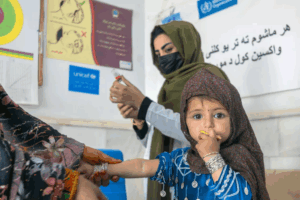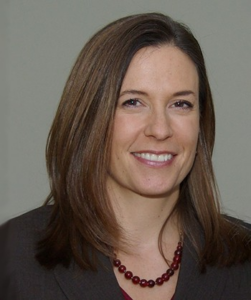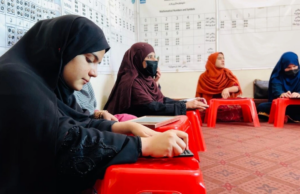Afghanistan Country Director Ahmed Kassas is a man on a mission to transform the lives of others: the people in the communities where International Medical Corps work, as well as his colleagues.

Written by Christin Runkle, Senior Specialist, Communications; Photos by International Medical Corps
First published October 30, 2024 by International Medical Corps
Afghanistan Country Director Ahmed Kassas is a man on a mission to transform the lives of others: the people in the communities where we work, as well as his colleagues.
Ahmed’s relationship with International Medical Corps began in 2013, while he was working at a hospital in Syria where International Medical Corps provided medications. After attending a one-on-one training session with Global Pharmaceutical Unit Director Mohammed Zurga, “I fell in love with International Medical Corps,” he says.
He applied for a job and joined the organization as a warehouse pharmacist in Türkiye in February 2014.
At the time, the warehouse processes needed improvement. But when a donor’s chief pharmacist visited a year later, he said that it was the first humanitarian warehouse he had seen that was as efficient as a private-sector warehouse. “That was because of teamwork, and I contributed to that,” Ahmed says.
Over the past decade, he has held a variety of jobs throughout the organization—but no matter his role, he takes the same approach: “I try to see the things we need to improve and then transform them.”
For example, while he was working as Deputy Director of Country Planning and Programs in Jordan, Ahmed collaborated with his colleagues to improve wait times at health facilities in refugee camps. Previously, the majority of patients would come to the clinics early in the morning, which created a rush and caused long wait times for the rest of the day. The new system that Ahmed helped create with his colleagues dedicates 60% of the clinics’ hours to patients who make an appointment in advance—organizing patients’ arrival times and reducing waits. The remainder of the clinics’ time is left open for walk-ins—including elderly people, pregnant women, people with disabilities and people from outside of the community—and is based on staff members’ understanding of when community members are most likely to visit the clinic throughout the day.
As a result, wait times have gone from as much as five hours to just 20 minutes.
“Each health facility contributed very positively to the lives of our beneficiaries,” he says. “We transformed the way that people now access the clinic.”
Sometimes he even goes beyond borders in the name of transformation. While working in Jordan, Ahmed saw a photo of a severely malnourished baby girl on social media. Not only was she in a different country—she lived with her family in neighboring Syria—she was in a camp for internally displaced people where International Medical Corps didn’t have a presence. Ahmed showed the photo to a nutrition manager, who shared the details with the Syria nutrition team’s Whatsapp group. The next day, an International Medical Corps pediatrician and infant and young-child feeding coordinator located the baby and conducted an assessment. They helped arrange an ambulance to take the child to a local hospital, where doctors ultimately referred her to a more advanced facility for five months. The nutrition team kept in touch with the family and frequently visited the baby once she returned home. Ten months after the team’s first visit, the baby was healthy and vibrant.
“All it took was talking to the team in Syria to bring this change to life,” Ahmed says.
Into the Field
Ahmed never imagined that someone who started out in an International Medical Corps warehouse would one day lead a mission as country director. Nor did he ever expect to become a country director at age 34.
“To get there, I had to learn a lot,” he says. “And people had to believe in my capacity. This is one of the many good things that I see at International Medical Corps—that people will invest in someone like me. The organization gives opportunities to people. There is no limitation to the support it will give, in terms of capacity building and knowledge sharing. Everyone can learn a lot at International Medical Corps, if they are focused on their work and on the mission.”

As the director of one of our largest missions, Ahmed is responsible for making everything run smoothly. He holds monthly meetings with female staff, who face additional challenges working in the country, and he meets with male staff once a month for a fireside chat on the topic of their choosing.
Ahmed, who says he is a “people person,” tries to stay close to his colleagues throughout the country. This means that, whenever security allows, he visits the field—even though travel in Afghanistan is difficult, and getting from one province to another can take up to 17 hours.
“I cannot be successful as a humanitarian if I don’t go to the field and if I don’t see what we are doing,” he says. “If I am sitting in an ivory tower, things will always look great. But when you go to the field, you see the good things, and you see the pains of the people. You see the challenges that our teams face.”
He recalls the advice he gave to the Jordan team when he left in November 2022 to become Afghanistan’s country director.
“I told them, when you’re sitting in an office, your work might get a little repetitive or difficult because you have a lot of deadlines. But always stay in touch with the reason why you are here, and always stay in touch with the people we help. Always look at the field staff and try to find ways to make their jobs easier, because that is why we are here.”
Though the work in Afghanistan is difficult, Ahmed says one of his top priorities is enjoying his work—and making sure his colleagues do, too.
“I’m trying to help people do what they’re best at,” he says. “When we provide the right leadership to the team, we help them to have a purpose, to improve in their careers—to be very successful, either as technical staff or as leaders.”
For Ahmed, leading his team in this manner is one of the things that makes his job worthwhile.
“Finding the best fit for staff members and helping them to succeed—these are some of the things I am most proud of doing at International Medical Corps,” he says.
Related Articles

Keeping the Lights on for Immunization
With KSrelief, UNICEF is powering 13 hospitals to store vaccines safely for women and children in Afghanistan.

Healing Young Afghan Refugees: Maine’s Innovative Approach to Mental Health
Working with Maine Immigrant and Refugee Services, the Research Program on Children and Adversity at Boston College, led by Dr. Theresa Betancourt, is pioneering a program in Maine to support Afghan refugee families, addressing trauma and promoting mental well-being through culturally sensitive interventions.

Visually Impaired Women Find Hope in Eastern Afghanistan
With tailored support, women who are blind are gaining the education, skills, and confidence to build a brighter, more independent future. From UNHCR.
